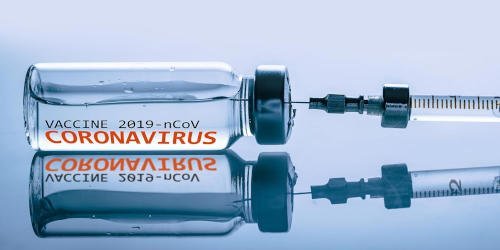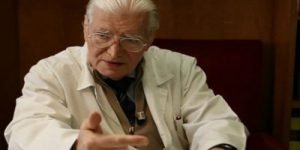The anti-Covid19 vaccine has been stirring up heated debate in recent weeks, both among those who are looking forward to it in order to feel protected from this unknown entity (virus), and those who, on the other hand, do not feel confident at all about a vaccine that seems to lack the necessary evidence of efficacy and absence of danger.
A few days ago the FDA, U.S. Federal Drug and Drug Administration, approved Pfizer's vaccine for emergency use, so, vaccination has begun in the U.S., although for now, protection of about 50% against possible infection from Covid is guaranteed after the first dose.
How can we be sure that the new anti-Covid vaccines are safe for the general population and, in particular, how can they not cause unwanted reactions when inoculated to individuals with autoimmune diseases?
We hear very little about this topic, and yet, autoimmune diseases are widespread, especially in recent years the number of cases has exploded, even in pediatric age, and it seems honestly unclear that possible side effects for allergic individuals are evaluated and the same issues and precautions for autoimmune individuals are not raised.
How can we not be concerned, knowing that vaccines by definition are designed precisely to provoke a reaction of the immune system, when carriers of autoimmunity already have hyper-reactive and dys-regulated immunity? Doubts in addition to being legitimate on the part of patients should find careful and precise consideration in the scientific community, which is still a long time coming.
It is also true that those undergoing immunosuppressive therapy may be far more dangerously exposed to viral and bacterial infections, so it needs to be clarified whether it is more important to prevent them from contracting the virus and its complications or to ward off the side effects of the vaccine, which are still an unknown.
One question I have, and to which I cannot find an answer even from super specialized articles on immunology, is: if you vaccinate an immunosuppressed patient, will his or her immune system be able to produce the desired and hoped-for antibody response or will it exhibit possible alterations and abnormalities?
If the patient wants to have the vaccine, will he or she have to stop treatment with biological drugs and immunosuppressants or not?
All of these issues, because of their importance, deserve to be addressed in a serious way, without numbers being given convenient meanings just to reassure the population in a hasty and superficial way in order to do mass vaccination; I am referring to the fact that experts, on the one hand, specify that "anaphylactic reactions are a very rare possibility," on the other hand we read that "In case of allergies, it is enough to have cortisone available." (so said infectiologist Roberto Cauda (director Uoc Gemelli) and former Ema chief Guido Rasi)
On the possibility of the anti-Covid vaccine also being given to those with autoimmune diseases, University of Padua immunologist Antonella Viola intervenes, stating in a post on her official Facebook page that "theoretically, there should be no problem, although in some individuals these vaccines induce strong inflammation and therefore a minimum of caution is necessary. But I would like to mention that, unlike vaccines, viruses are known activators of autoimmune diseases and that between vaccine and infection the former is always better, even for an autoimmune patient". But then he adds that "In 2019, recommendations for vaccination in adult patients and patients with autoimmune diseases were published (Eular 2019). And it is clearly written that influenza vaccination is strongly recommended in the very large majority of patients. So is the pneumococcal one," the immunologist points out. "As for the anti-Covid vaccination, we don't know yet what will be decided. We have no experience with mRna-based vaccines in patients with autoimmunity."
This explanation not only cannot be satisfactory, but is even evasive, and contradicts a whole range of other recommendations and studies over the years that have shown a link between vaccines and the development of even very serious autoimmune diseases.
https://www.ncbi.nlm.nih.gov/pmc/articles/PMC5607155/
It seems very strange to me that there is this thoughtfulness in advising autoimmune and immunocompromised patients for them to continue and do the therapies because "they do not seem to show increased risks of severe forms of covid-19" , given that so far the indications in this regard have often been opposite and much more cautious.
https://www.medicalfacts.it/2020/06/05/coronavirus-pazienti-malattie-autoimmune/
The scientific community seems more concerned about rushing to inject the first doses than about preventing possible even serious reactions; the fact that the first to receive the vaccine are the elderly does not make this operation any less delicate indeed as Dr. Barbara Balanzoni, a surgeon specializing in anesthesia and resuscitation, who often speaks on the subject points out "the volunteers in the Covid vaccine trial were healthy, they were not people with many comorbidities like the more frail elderly who will have to be vaccinated first."
Another point to be clarified remains the long-term effects of the vaccine, the only thing the experts on the subject can tell us is that "On long-term side effects, there is no drug and there is no vaccine on which we can say a priori 'it won't hurt me in 10 years' (Professor Massimo Galli).
Can we be satisfied with that? I would say definitely not.
On the point I recommend you read this book by Heinrich Kremer, one of the currently most influential scientists in research against degenerative diseases such as the cancer, l'AIDS and the vaccination damage. Kremer is a physician with doctorates in medicine, psychiatry and neurology, with studies in psychology and sociology behind him as well. His career as a dissident researcher began in 1982 when he was entrusted with the first clinical trial in Germany of the hepatitis B vaccine and a few months later with the HIV antibody test. After years of disagreements with the state administration over drug and AIDS policy, he resigned and began a difficult independent research career that led to extraordinary breakthroughs in AIDS, cancer, and artificial immunoprophylaxis.
 | New knowledge about the immune system and consequences of vaccine use in the medium and long term E.U. Customers.
€ 9,50 |
 | New knowledge about the immune system and consequences of vaccine use in the medium and long term E.U. Customers.
€ 4,50 |





